
Forage-Focused Diets for Young Horses
When switching your horse to a forage-focused diet, first obtain a hay analysis and choose a ration balancer that fills the nutritional gaps.
Equine experts answer your questions about equine nutrition and feeding horses in this series of Q&As.
Sponsored by Purina Animal Nutrition.
Do you have an equine nutrition question? The Horse’s editors want to hear from you! Send your questions to editorial@TheHorse.com.

When switching your horse to a forage-focused diet, first obtain a hay analysis and choose a ration balancer that fills the nutritional gaps.
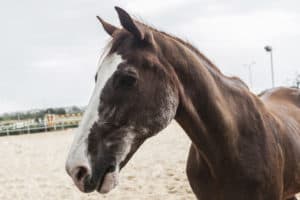
Is your senior horse a picky eater? Be sure he has regular veterinary dental examinations and consider changing his forage or concentrate feed.
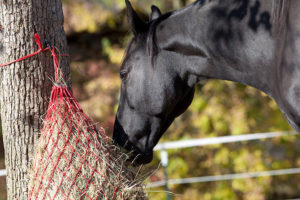
Sourcing lower energy hay and implementing slow-feeding strategies can help reduce your horse’s risk of becoming obese and developing metabolic problems.
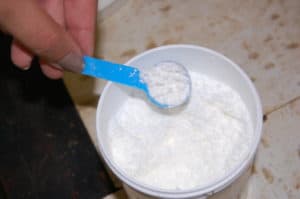
Horses with cellulitis need medical intervention from a veterinarian, but these efforts can be supported through a balanced diet. Here’s why.
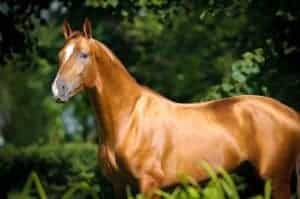
Before adding fat to your horse’s diet to improve his coat, be sure he’s on a balanced diet and that you’re grooming him regularly.
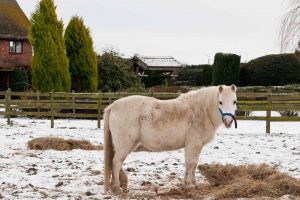
An equine nutritionist explains why you should consider your individual horse’s needs and forage source before choosing a ration balancer.

Follow these 3 steps to feed your horses efficiently and potentially help reduce your feed bill.

If your horse is living in an area with poor air quality, he might benefit from wet or steamed hay and omega-3 supplementation.
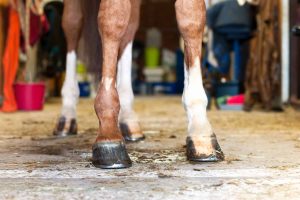
If your horses have poor hoof quality, consider making changes to their diet to help strengthen their hooves.
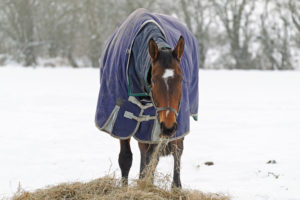
Addressing your OTTB’s diet in three phases will help you provide the nutrition he needs to thrive in his new career.

Horses with PSSM1 might benefit from magnesium supplementation, but it is important to use the right form and reevaluate its effects on your horse periodically.

Certain groups of horses can benefit from eating soaked alfalfa pellets, which are the finely chopped and compressed form of the nutrient-dense legume.

Phytoestrogens in horse diets might have physiological effects on mares. An equine nutritionist explains how and why.

Does your horse need a salt block? Should you top-dress their feed? An equine nutritionist weighs in.

Horses living in areas with sandy soil are at a greater risk of sand colic and impactions. An equine nutritionist offers advice on mitigating this risk.

Is it safe to feed your horse alfalfa pellets and grain alone? An equine nutritionist weighs in on the subject.
Stay on top of the most recent Horse Health news with
© 2022 Copyright Statement dolor sit amet, consetetur sadipscing User Terms, sed diam nonumy eirmod tempor invidunt ut labore et dolore magna aliquyam erat, sed diam voluptua. At vero eos et accusam et justo duo dolores et ea rebum. Stet clita kasd gubergren, no sea takimata sanctus est Lorem ipsum dolor sit amet.
"*" indicates required fields